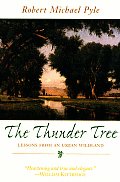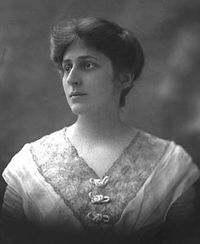Well, I still haven't read Linda Hirshman's
Get to Work: A Manifesto for Women of the World, so I really can't blog about it. I'm on the library waiting list for it (and I didn't even request that they buy it, as I prefer to only do that for books I really think are useful to more people, such as Miriam Peskowitz's
The Truth Behind the Mommy Wars), so I don't have to give Hirshman any of my money to read it.
The latest round of articles (both on the web and in the print media) on Hirshman is basically a reaction to her inflammatory, self-promoting article
"Unleashing the Wrath of Stay-at-Home Moms" in last month's
Washington Post. As you might expect (see my response to her
American Prospect article here), she made some statements with which I vehemently disagreed. And although I learned my lesson about blogging about a book before reading it with
To Hell with All That, this doesn't mean that I can't comment on Hirshman's Opinion piece. So let the fisking begin:
The mommyblogs vilified me as a single, childless, bitter loser; the feminists claimed women weren't quitting; and a chorus of other voices didn't care what I said -- criticizing women just wasn't allowed. A handful of political thinkers did concede that I had raised the biggest issue left for feminism -- justice in the family -- but it was definitely a minority report.
Talk about a gross exaggeration. Some
commenters on some blogs certainly speculated that someone who used such vituperative language about mothers must not be one herself, but none of the other bloggers that I read (see the many listed in my previous blog post on Hirshman) said anything like that. Note Hirshman's use of "mommyblogs" here - she might as well say, "Now, now, little mommies, you just leave this heavy thinking to the philosopher here." Please also note that the article that she touts as evidence of how maligned she has been -
Everybody Hates Linda - is actually a pretty thoughtful piece that "positively applauds" some of Hirshman's ideas - while not shirking from a dispassionate analysis of its flaws.
The aggressive domesticity is not coming only from a bunch of women who can't manage all the demands on their time. Time and again, when I could identify the sources of the most rabid criticism and Google them, male and female, they had fundamentalist religious stuff on their Web sites or in the involuntary biographies that Google makes possible.
Once again, a ridiculous exaggeration. Very few of the many blogs that I read had religious ties, let alone fundamentalist ones. On the contrary, most of the blog criticism that I read (and enjoyed) came from overtly liberal and very a-religious sites. Well, maybe Linda found some secret cache of rabid bloggers that neither Technorati nor Google Blog could uncover.
Much worse than the roofing-and-barfing and salvation crowds, though, were the relativists, who criticized me for trying to give feminism some context and boundaries.
Well, since Linda has effectively discounted anyone who has written about the mundane aspects of life, and anyone who admits to any religious affiliation (please note that the latter does not include me), now she goes after the relativists. Damn all you compromisers, anyway! Remember, only Linda is qualified to provide the (ridiculously exaggerated) context for feminism, and its new more stringent boundaries.
These so-called liberals and feminists, who were once in the forefront of making social change, declared that people could no longer suggest that women should change their lives. A generation ago, such liberals included Betty Friedan, who called staying at home "the problem that has no name," and Alix Kates Shulman, who suggested that women should take on the problem by refusing to do 70 percent of the housework.
Apparently, Linda hasn't read anything that Betty Friedan or Alix Kates Shulman wrote after the 1970's. I suggest that she read Friedan's
The Second Stage or Shulman's
Drinking the Rain to see how more thoughtful second wave feminists matured. Wait, though - I have to warn you, Shulman talks about her roof and domestic pleasures at great length. Mind you, I am not a supporter of a domestic glass ceiling, I just don't think that Hirshman's solutions are workable or even reasonable.
Well. There was no chance that I was going to shut up. I'm retired. If I'm not going to raise hard questions for women, who will?
Why, Linda? Why? Why on earth did you retire if working at a law firm or as a philosophy professor was for the greater good?
And Katha Pollitt, Joan Blades, and Kristin Rowe-Finkbeiner are my latest choices for people raising hard questions for women. Or the (yeah, I know, those democratic unwashed masses from the internet again) feminist and "mommy" bloggers out there (see blog roll on right side of screen). Which reminds me, I forgot to link to the
18th Carnival of Feminists. Don't forget to check out
Redneck Mother's post in there.
I guess working women are too busy at work to blog about their lives and are already on their way to their jobs when "Good Morning America" puts me on at 8 a.m. Maybe a little scared? They're doing what beleaguered, overworked people do. They're publishing a manifesto.
Gee, a lot of the women I know with jobs outside the house have a lot
more time to blog than those at home. Maybe the reason that they aren't showering Linda with praise is because they don't like her argument? Maybe they resent not having more choices and flexibility?
And Linda - we already have a manifesto. Check out T
he Motherhood Manifesto: What America's Moms Want - and What to Do About It and
momsrising.org. I think there's a lot there that many corporate workers (not just parents) can appreciate. Yeah, it's got choice, but that doesn't mean it doesn't also have boundaries.
_________________________________________
Some more responses:
Taking the Political Personally, from Crooked Timber - note many fascinating responses to his question of "
why it is that this is such an emotive topic?"
The Personal Is (Still) Political, at Half Changed World - on how our personal choices (about feminism, in particular) can change the world
A Working Girl Can Win, in Slate, by Meghan O'Rourke - on some of the points that Hirshman makes that may be overlooked in the brouhaha
Understanding Betty Friedan: Why Linda Hirshman Doesn't, in Slate, by Emily Bazelon - on some of Hirshman's mistakes and the mis-charaterization of an important second wave feminist
Do We Trust Mothers? and
Spreadin Love - and well, many other cogent posts by 11D. Just read all of her blog, it's worth it.
One of my favorite articles is
Mommy Wars, Round 587, by Katha Pollitt in
The Nation - it compares Hirshman and Caitlin Flanagan, who are so similar in their obnoxious self-promotion and self-righteousness. I think I'll be buying Pollitt's new book,
Virginity or Death!Katha Pollitt on Flanagan and Hirshman, on Alas (A Blog) - wonderful comments, including some from Pollitt.
and
Echidne of the Snakes - again, check out the comments. Certainly not from a bunch of religious wingnuts.
and edited on 7/14 to add:
Hirshman and the Value of Working, Round Two, by Leslie Morgan Steiner - many comments, but I didn't see anything really new jump out.
 The Thunder Tree: Lessons from an Urban Wildland, by Robert Michael Pyle, is a hard book to summarize. I think the different chapters work better as free-standing essays. Some of them waxed so eloquent I was in tears (and I’m not even pregnant, so I don’t cry at the drop of a hat anymore), and a few others I had to struggle to finish because I got mired in the plants, ecological relationships, and butterfly species Pyle describes. If you are acquainted with Denver and the history of its suburbs, or the history of water use in the western US, you’ll also like The Thunder Tree, but I imagine that this isn’t a huge group of readers.
The Thunder Tree: Lessons from an Urban Wildland, by Robert Michael Pyle, is a hard book to summarize. I think the different chapters work better as free-standing essays. Some of them waxed so eloquent I was in tears (and I’m not even pregnant, so I don’t cry at the drop of a hat anymore), and a few others I had to struggle to finish because I got mired in the plants, ecological relationships, and butterfly species Pyle describes. If you are acquainted with Denver and the history of its suburbs, or the history of water use in the western US, you’ll also like The Thunder Tree, but I imagine that this isn’t a huge group of readers.





